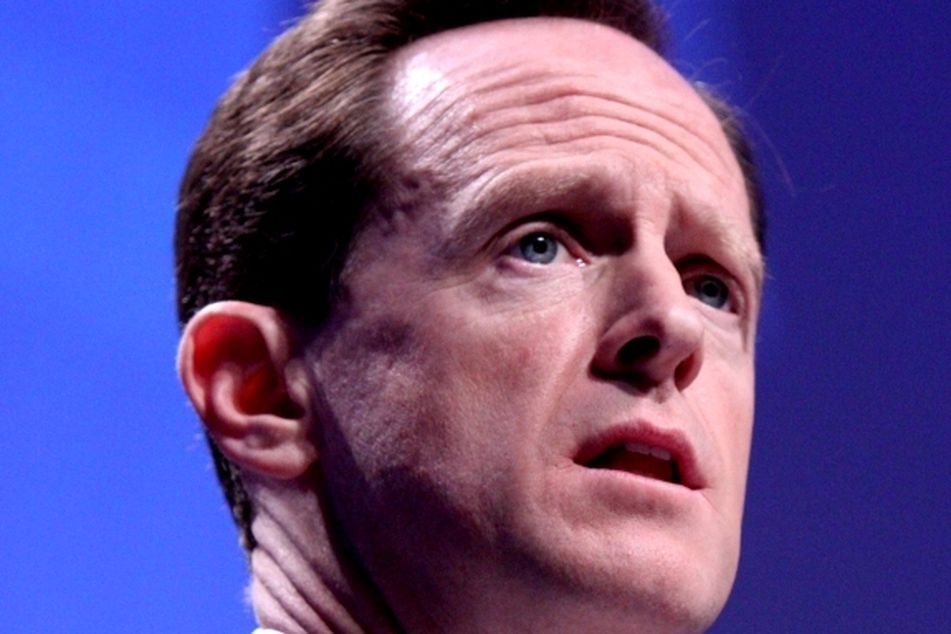Sen. Toomey: ‘Money funds are under attack’

SEC regulations threaten the viability of money market funds, says Pennsylvania GOP Senator Pat Toomey
With the SEC poised to propose money market fund reforms, Sen. Patrick Toomey, R-Pa., is warning that further regulation could doom the investment instruments.
“I think that money funds are under attack,” Mr. Toomey, a member of the Senate Banking Committee, said at the U.S. Chamber of Commerce today.
More Securities and Exchange Commission regulations “threaten the viability of the product itself. We should push back very aggressively,” Mr. Toomey said.
In the early spring, the SEC is expected to release a proposed rule designed to prevent an investor stampede for the exits like the one that forced the Reserve Primary Fund to “break the buck” during the 2008 financial crisis and redeem less than the traditional $1 net asset value that money funds promise.
One part of the proposal is likely to recommend a capital buffer — financed through corporate cash, stock offerings or shareholder fees — combined with redemption restrictions. The other part will recommend letting the funds’ NAV float.
The SEC will take comments on both parts, and the five commissioners will choose one of the two options.
The SEC said that the proposal is a long-planned follow-up to money market reforms instituted in 2010.
One 2010 change required money funds, which typically invest in short-term debt, to use safer assets. Another required them to invest in instruments providing 10% liquidity on a daily basis and 30% liquidity each week.
Still another reform shortened money fund maturities.
There is $2.6 trillion in money markets.
The 2010 reforms are sufficient, according to Mr. Toomey.
They succeeded in protecting money funds last summer when the European debt crisis hit and U.S. debt was downgraded, he said.
In addition, Mr. Toomey said that the Reserve Primary Fund incident was an isolated case in the otherwise safe money fund market.
He opposes both the floating-NAV and capital buffer ideas. Mr. Toomey questioned how the latter is feasible in this zero-interest-rate environment.
“How many basis points are available to use to create a higher return for a capital cushion?” he asked rhetorically.
Like many Republicans who are skeptical of SEC rule making, Mr. Toomey plans to demand a thorough cost-benefit analysis.
“I want to see how they’ve done that and challenge their methodology,” he said. “If necessary, I wouldn’t rule out legislation that would push back.”
Mr. Toomey said that he will also call for hearings, which the Democratic majority would have to schedule.
But he said that there is also interest in the issue on the other side of the aisle.
“There are some Democratic colleagues who have some real concerns about this,” Mr. Toomey told reporters after his speech.
The SEC said that it is trying to protect investors from a destabilizing event such as the 2008 collapse of the Reserve Primary Fund. The follow-up rules will target systemic risks involved in a contagious massive investor pullout when markets hit the skids.
“As a first step of reform, the SEC adopted meaningful measures to increase the resiliency of money market funds by shortening their maturities and enhancing their liquidity,” SEC spokesman John Nester said in a statement. “As a second step, the chairman is advocating structural reforms to money market funds to address their susceptibility to runs and provide a buffer against losses.”
But Paul Schott Stevens, president and chief executive of the Investment Company Institute, told the chamber audience that prime money market funds held an estimated $643 billion in daily and weekly assets as of last May 30, which helped them smoothly manage $172 billion in withdrawals between June and August without breaking the buck.
“This is a very different industry than we saw in 2008,” he said. “Regulations should take that into account.”
Learn more about reprints and licensing for this article.







